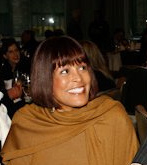
Jane Jacobs quotes about city
American Sociologist May 1, 1916 – April 25, 2006
Cite this Page: CitationQuotes
His aim was the creation of self sufficient small towns, really very nice towns if you were docile and had no plans of your own and did not mind spending your life with others with no plans of their own. As in all Utopias, the right to have plans of any significance belonged only to the planner in charge.- discussing Ebenezer Howards' Garden City
Jane Jacobs
Play on lively, diversified sidewalks differs from virtually all other daily incidental play offered American children today: It is play not conducted in a matriarchy. Most city architectural designers and planners are men. Curiously, they design and plan to exclude men as part of normal, daytime life wherever people live. In planning residential life, they aim at filling the presumed daily needs of impossibly vacuous housewives and preschool tots. They plan, in short, strictly for...
Jane Jacobs
There is a widespread belief that americans hate cities. I think it is probable that Americans hate city failure, but, from the evidence, we certainly do not hate successful and vital city areas. On the contrary, so many people want to make use of such places, so many people want to work in them or live in them or visit in them, that municipal self-destruction ensues. In killing successful diversity combinations with money, we are employing perhaps our nearest equivalent to killing with...
Jane Jacobs
Planners, architects of city design, and those they have led along with them in their beliefs are not consciously disdainful of the importance of knowing how things work. On the contrary, they have gone to great pains to learn what saints ans sages of modern orthodox planning have said about how cities ought to work and what ought to be good for people and business in them. They take this with such devotion that when contradictory reality intrudes, threatening tho shatter their dearly won...
Jane Jacobs
To generate exuberant diversity in a city's streets and districts four conditions are indispensable:1. The district, and indeed as many of its internal parts as possible, must serve more than one primary function; preferably more than two...2. Most blocks must be short; that is, streets and opportunities to turn corners must be frequent.3. The district must mingle buildings that vary in age and condition, including a good proportion of old ones so that they vary in the economic yield they...
Jane Jacobs
The more successfully a city mingles everyday diversity of uses and users in its everyday streets, the more successfully, casually (and economically) its people thereby enliven and support well-located parks that can thus give back grace and delight to their neighborhoods instead of vacuity.
Jane Jacobs
I have been dwelling upon downtowns. This is not because mixtures of primary uses are unneeded elsewhere in cities. On the contrary they are needed, and the success of mixtures downtown (on in the most intensive portions of cities, whatever they are called) is related to the mixture possible in other part of cities.
Jane Jacobs
- 1
- 2
Popular Author
Related Authors
-
AW
Albion W. Small Sociologist
-
DR
David Riesman Sociologist
-
DT
Deborah Tannen Sociologist
-
 Faye Wattleton Sociologist
Faye Wattleton Sociologist -
 Jane Jacobs Sociologist
Jane Jacobs Sociologist -
JS
John Shelton Reed Sociologist
-
KL
Kenneth L. Pike Sociologist
-
PL
Peter L. Berger Sociologist
-
TG
Todd Gitlin Sociologist
-
WJ
William Julius Wilson Sociologist
